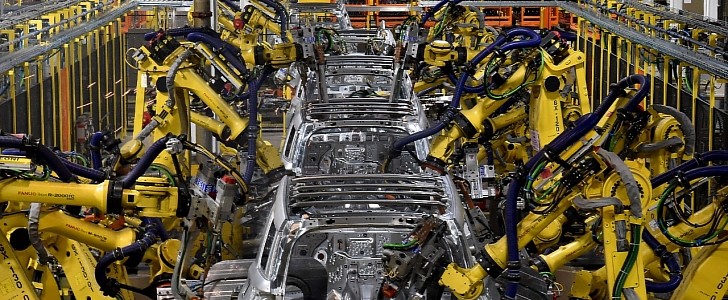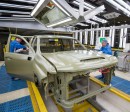The chip shortage was supposed to be over by now, but as it’s already obvious, the constrained inventory isn’t going anywhere for the time being, and even worse, it would stick around for way longer.
Carmakers across the world are currently battling a very constrained semiconductor inventory, and a Canadian lawmaker used a trip to Taiwan as an opportunity to emphasize the need for increased production capacity.
Chris Lewis, who is an Ontario member of parliament, told reporters in Taiwan that carmakers in Canada are currently struggling with what he described as “very major shortages” of chips. He said most companies operating plants in Ontario, including American carmakers, have filled their parking lots with vehicles waiting for chips.
Lewis traveled to Taiwan as part of a Canadian delegation and also met with TSMC to discuss the chip shortage. “Please send us more chips,” Lewis was quoted as saying, with Taiwanese semiconductor makers allegedly working on aligning the production with the demand as we speak.
Taiwan Semiconductor Manufacturing Company, also known as TSMC, is currently the world’s number one chipmaker.
Lewis also emphasized the need for U.S. and Canada-based chip production, especially as more companies are investing in new facilities following the CHIPS Act.
For the time being, however, addressing the chip shortage overnight seems to be impossible. While carmakers expected a substantial recovery in late 2022, industry experts now believe that the constrained inventory would continue to be a problem until 2023.
General Motors’ CEO, for example, warned that the chip crisis is unlikely to come to an end until next year, warning that in some cases, companies in the automotive market could continue battling a tight supply even beyond 2023.
In the meantime, carmakers across the globe, including giants like Toyota, turn to aggressive measures of reducing production disruptions, such as temporary halts of assembly plants until the chip supply is replenished.
Chris Lewis, who is an Ontario member of parliament, told reporters in Taiwan that carmakers in Canada are currently struggling with what he described as “very major shortages” of chips. He said most companies operating plants in Ontario, including American carmakers, have filled their parking lots with vehicles waiting for chips.
Lewis traveled to Taiwan as part of a Canadian delegation and also met with TSMC to discuss the chip shortage. “Please send us more chips,” Lewis was quoted as saying, with Taiwanese semiconductor makers allegedly working on aligning the production with the demand as we speak.
Taiwan Semiconductor Manufacturing Company, also known as TSMC, is currently the world’s number one chipmaker.
Lewis also emphasized the need for U.S. and Canada-based chip production, especially as more companies are investing in new facilities following the CHIPS Act.
For the time being, however, addressing the chip shortage overnight seems to be impossible. While carmakers expected a substantial recovery in late 2022, industry experts now believe that the constrained inventory would continue to be a problem until 2023.
General Motors’ CEO, for example, warned that the chip crisis is unlikely to come to an end until next year, warning that in some cases, companies in the automotive market could continue battling a tight supply even beyond 2023.
In the meantime, carmakers across the globe, including giants like Toyota, turn to aggressive measures of reducing production disruptions, such as temporary halts of assembly plants until the chip supply is replenished.






